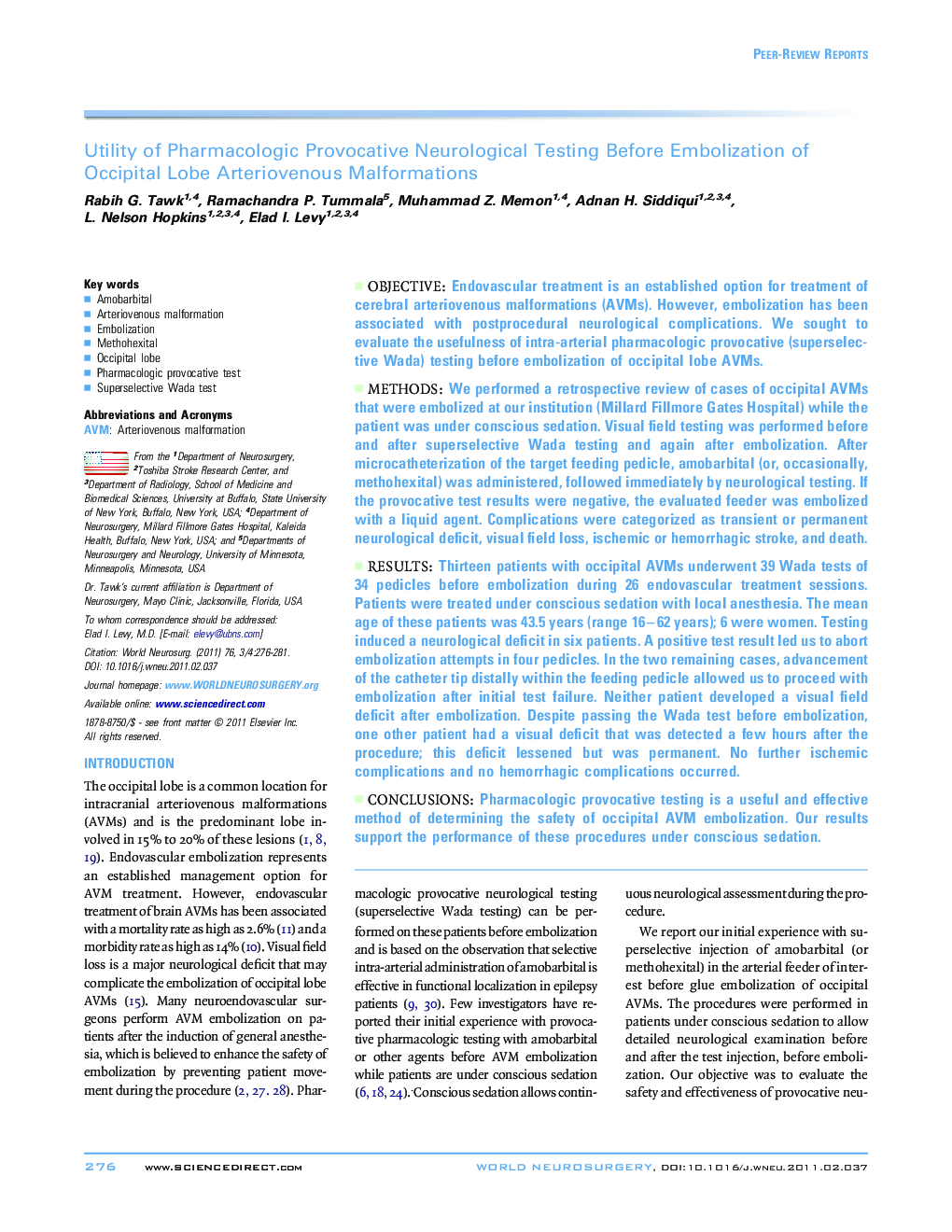| کد مقاله | کد نشریه | سال انتشار | مقاله انگلیسی | نسخه تمام متن |
|---|---|---|---|---|
| 3096785 | 1581484 | 2011 | 6 صفحه PDF | دانلود رایگان |

ObjectiveEndovascular treatment is an established option for treatment of cerebral arteriovenous malformations (AVMs). However, embolization has been associated with postprocedural neurological complications. We sought to evaluate the usefulness of intra-arterial pharmacologic provocative (superselective Wada) testing before embolization of occipital lobe AVMs.MethodsWe performed a retrospective review of cases of occipital AVMs that were embolized at our institution (Millard Fillmore Gates Hospital) while the patient was under conscious sedation. Visual field testing was performed before and after superselective Wada testing and again after embolization. After microcatheterization of the target feeding pedicle, amobarbital (or, occasionally, methohexital) was administered, followed immediately by neurological testing. If the provocative test results were negative, the evaluated feeder was embolized with a liquid agent. Complications were categorized as transient or permanent neurological deficit, visual field loss, ischemic or hemorrhagic stroke, and death.ResultsThirteen patients with occipital AVMs underwent 39 Wada tests of 34 pedicles before embolization during 26 endovascular treatment sessions. Patients were treated under conscious sedation with local anesthesia. The mean age of these patients was 43.5 years (range 16–62 years); 6 were women. Testing induced a neurological deficit in six patients. A positive test result led us to abort embolization attempts in four pedicles. In the two remaining cases, advancement of the catheter tip distally within the feeding pedicle allowed us to proceed with embolization after initial test failure. Neither patient developed a visual field deficit after embolization. Despite passing the Wada test before embolization, one other patient had a visual deficit that was detected a few hours after the procedure; this deficit lessened but was permanent. No further ischemic complications and no hemorrhagic complications occurred.ConclusionsPharmacologic provocative testing is a useful and effective method of determining the safety of occipital AVM embolization. Our results support the performance of these procedures under conscious sedation.
Journal: World Neurosurgery - Volume 76, Issues 3–4, September–October 2011, Pages 276–281